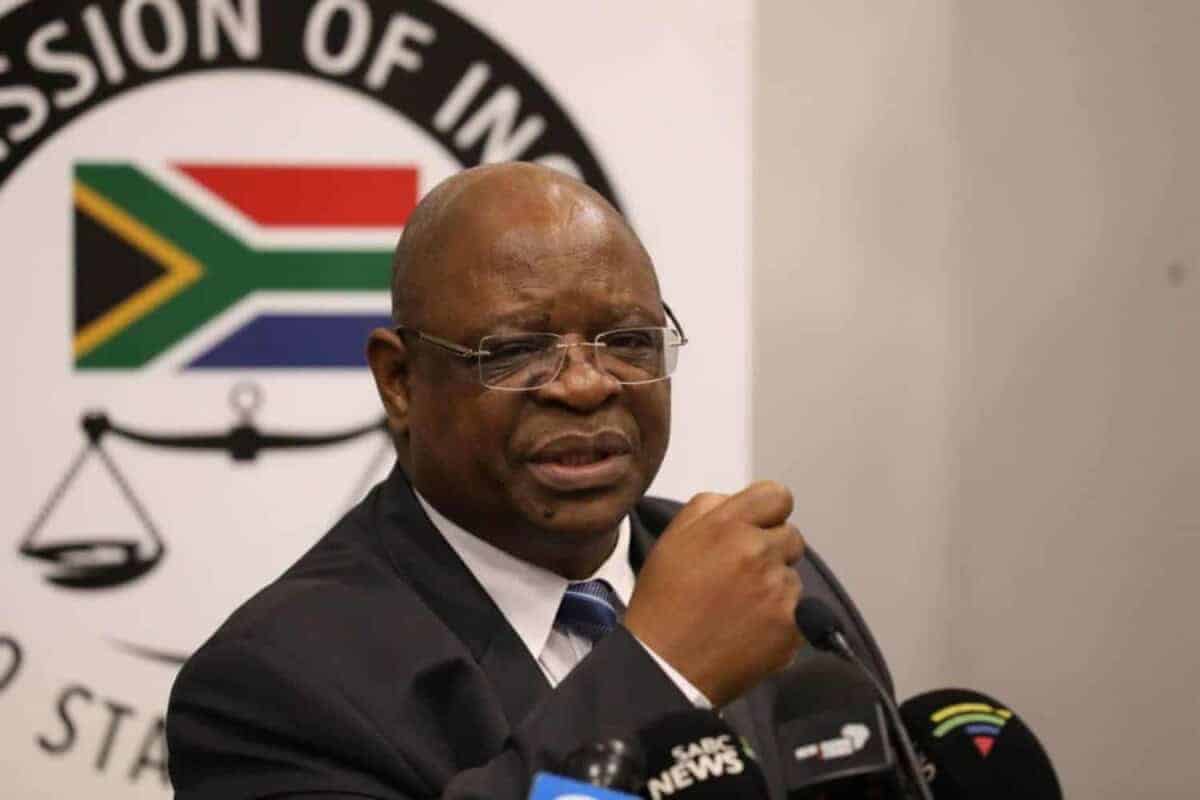The presence of politicians near murder suspects and failure to act on Zondo’s report signal deep systemic decay.

Two recent events highlighted a perceived intermingling of South African politicians with the criminal underworld – and the ANC’s utter inability to fix this.
The first event was Kenny Kunene pitching up at the home of a murder suspect at the centre of a web of alleged politically tainted criminality.
The second was former chief justice Raymond Zondo’s critique of President Cyril Ramaphosa’s failure to implement recommendations of the commission of inquiry into state capture.
Kunene’s stated reasons for being at Katiso Molefe’s home were implausible to radio, TV and social media audiences.
Even his long-time friend and political boss, fellow ex-convict Gayton McKenzie, knew the position was indefensible.
ALSO READ: Why the ANC remains a safe haven for corruption
Molefe was mentioned in KwaZulu-Natal police commissioner Lieutenant-General Nhlanhla Mkhwanazi’s media conference on 6 July, where allegations were made about senior police machinations.
Molefe should have been off-bounds for any media-savvy politician. Kunene has not only reinforced the common perception that politicians are not to be trusted.
It goes deeper. In an environment where whistle-blowers are slain with impunity, the link to a murder suspect could give rise to more sinister inferences.
Impunity is also at the heart of Zondo’s concerns, where he detailed failures of the justice system.
As chief justice, he found it painful to swear-in Cabinet ministers who had serious state capture findings against them.
ALSO READ: Now we wait for accountability, Mr Mayor
“It was like the president was saying: ‘I don’t care what you have found about these people. I think they are good enough to be promoted.’”
Zondo’s words are a vote of no confidence in Ramaphosa by arguably the most respected judge in the country. Zondo lacks faith that crooks will be brought to book under Ramaphosa’s presidency.
Indeed, in South Africa, most culprits get away with murder and much else. Only around 6.8% of murder cases with arrests lead to convictions. In many cases, there are no arrests.
So, the percentage of murder convictions per total number of murders (with and without arrests) will be lower. This picture contributes to the impunity with which criminals, including politicians, operate. In every sphere, crooks carry on because they know the chances of being convicted are slim.
Proper implementation of Zondo’s recommendations would have changed this perception.
ALSO READ: The real national dialogue has begun
On Monday, the Presidency reported “significant progress” in implementing reforms. Ramaphosa claimed 48% completion of actions from Zondo’s recommendations, adding that high-profile cases are scheduled for 2025-26.
Given the lack of success in cases thus far, it is hardly reassuring to hear that cases are pending. Where are the significant arrests?
Why did Ramaphosa choose for his Cabinet from people implicated in Zondo’s report? Zondo has every right to feel disappointed.
After sitting for four years, hearing 300 witnesses, producing 8 655 530 pages of documents and spending R1 billion of taxpayers’ money, implicating more than 1 438 people, his team felt “their efforts were for nothing”.
Many South Africans will agree. Why are so many of the people implicated in the Zondo report now sitting in parliament instead of being in court or in jail?
ALSO READ: RET faction gains ground as Ramaphosa falters
And ex-con politicians link themselves to murder suspects. When politicians and criminals are indistinguishable from each other and the underworld are overlords, it’s time to revolt.
Support Local Journalism
Add The Citizen as a Preferred Source on Google and follow us on Google News to see more of our trusted reporting in Google News and Top Stories.








